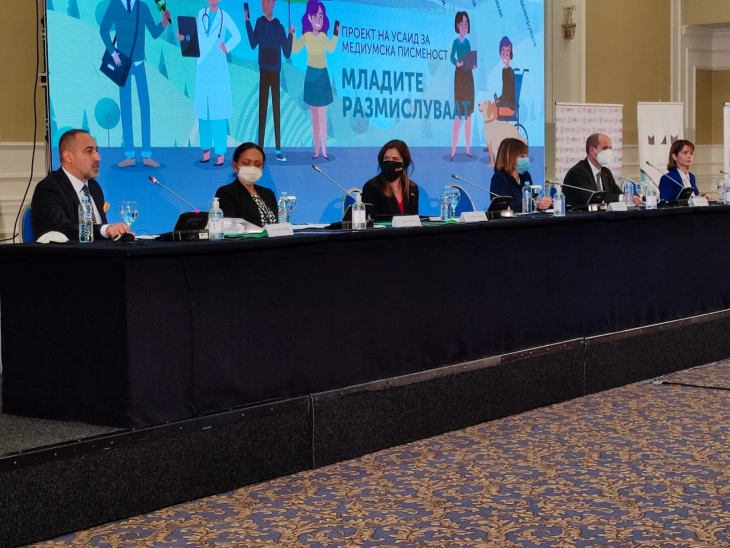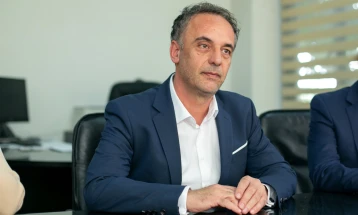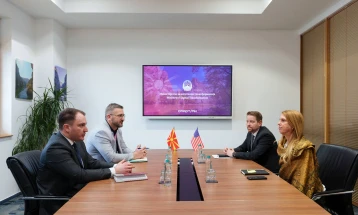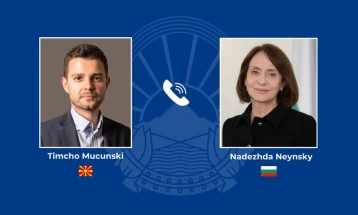USAID media literacy project presented in Skopje

Skopje, 22 November 2021 (MIA) – Under the new concept, media literacy is being studied as a separate subject in curriculums of native language studies: Macedonian, Albanian, Turkish, Serbian and Bosnian. Teachers are obligated to integrate media literacy into other areas and topics in order to enable students to link their knowledge from various areas throughout the school-year. The new curriculums were rolled out into the first and fourth grades in the new school-year 2021/2022, implementing studies of media literacy for these two grades, and slowly rolling them out in upper grades as well, according to Minister of Education and Science, Mila Carovska, at the presentation on Monday of USAID’s media literacy project titled YouThink.
Also, a memorandum of understanding was signed at the event.
She said that this is one segment of elementary education reforms which are of exceptional value to the country’s future. She’s firmly convinced that the project will yield good results and provide an opportunity to train teachers to transfer knowledge and skills to the students that will enable them to intercept fake news, to always use correct information, and to employ critical thinking.
“The implementation of media literacy in the new curriculums are meant to help create generations that have knowledge and tools to manage fake news. That’s a characteristic of a strong democratic society, to give its citizens approach to correct, timely information. Additionally, students and citizens should have skillsets and information from various sources. The education system is obligated to train them to do research from various sources, which may not always be accurate or have good intentions, to analyze them, connect them to other information, and to think critically,” Carovska said.
US Ambassador to North Macedonia, Kate Marie Byrnes, said that digital and printed media worldwide have been ‘polluted’ by significant manipulation. Digital content is largely dominated by unverified, sensationalist, and politically or business motivated interests, she said.
She points out that the American Embassy has supported independent and professional media in this country over the past 30 years, i.e., they’ve helped raised ethical norms and standards. YouThink is a new step forward for the audience.
Media literacy, Byrnes said, today stands for a lot more than just the ability to read and write. It entails the abilities to search and critically judge mutually conflicting information in order to have a debate, and defend the opinions based on facts and evidence.
Macedonian Institute of Media (MIM) Director Biljana Petkovska, emphasized that the start of the process of implementing media literacy in elementary and high school level education begins on Monday. The MIM will take part through conducting various activities in elementary and high school education, backed by USAID and coordinated with IREKS, the Ministry of Education and Science, and the Bureau for the Development of Education.
“The key for us is to give teachers in elementary and high school the knowledge, skills and educational resources from the area of media literacy and critical approaches to information, so that it’s studied in the curriculums of the formal education system in our country,” Petkovska said.
Over the next five years, the MIM, alongside the MES and the Bureau for the Development of Education will organize training courses for teachers from elementary and high schools state-wide. Resources which include manuals and exercises, training approaches and materials will be provided to prepare the teachers to be able to educate the students. dk/ba/







